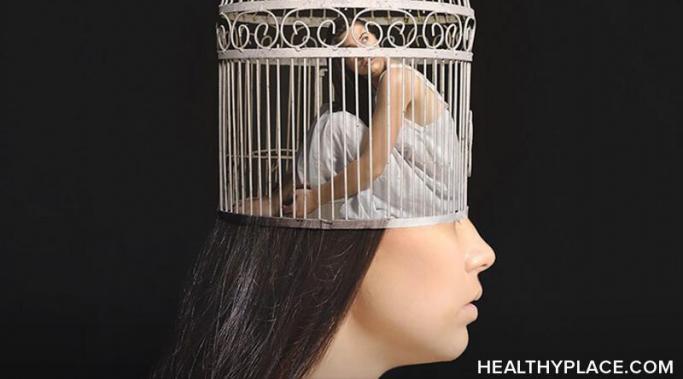Anxiety in romantic relationships, for better or worse, complicates love. I’ve had a variety of significant others. Some partners were supportive of my mental conditions, while others were not sympathetic to any significant degree. I’ve had to deal with many problems, such as rejection and anxiety about the state of my relationships. Though anxiety complicates my romantic relationships, it doesn’t make romance impossible for me.
Effects of Anxiety
Is it anxiety or a medical condition? It can be hard to tell because anxiety can feel miserable throughout the entire body, and symptoms can be frightening enough to cause people to wonder if they have anxiety or a medical condition. Not knowing what your symptoms mean can increase existing anxiety or cause new anxieties and worries. Of course, that can worsen physical symptoms and that, in turn, increase worries. Worrying whether you have anxiety or a medical condition can become a vicious cycle of worry, physical discomfort or pain, and worsening mental-- and physical health. Knowing what medical conditions share symptoms with anxiety can help you sort out the healing approach that is best for you.
Do you hate the anxiety that uncertainty causes? Does not knowing cause you intolerable stress? If not knowing what might happen, officially called uncertainty intolerance, makes you worry so much that it’s interfering with your life, know that you’re not alone. Many people who have anxiety, whether or not it’s an anxiety disorder such as generalized anxiety disorder (GAD), also have difficulty living with any sort of uncertainty.
My anxiety over health insurance since my divorce 15 months ago, is increasing daily. While married, I was covered as a dependent under Tricare, the military’s insurance. When I moved to Idaho and eventually divorced, I found myself in what is called "the gap" in Idaho's health care coverage.1 It is a hole in Idaho’s health insurance plan where thousands of Idahoans do not have affordable access to healthcare coverage. Because my daughter is on her father’s insurance, I am not eligible for Medicaid. As it stands, I receive no tax credit for insurance because of my income bracket. Therefore, affordable rates for health insurance aren't available to me. I need anxiety treatment, and this anxiety over health insurance is not helping.
Anxiety jabbers incessantly, creating maddening and anxious running commentary in our heads. To make it worse, anxiety acts as a translator and interprets what we hear and see, twisting things into its own warped ideas. With anxiety translating messages we receive, we often misinterpret the world around us. Anxiety's untrustworthy thoughts lead to self-doubt, faulty reasoning, negative beliefs, overthinking, and overanalyzing. Becoming aware of how the anxious voice in your head translates our incoming messages is an important step in correcting the translations and quieting the anxious running commentary that interrupts your inner speech.
Performance anxiety may prevent me from living my dream of singing professionally. Since junior high school, choir teachers and audience members commented on my anxious stage presence. I loved to sing with other people in unison or harmony, but when it came to solos, I was a nervous wreck. I was the recipient of the “Every Which Way but Loose” award in high school choir because onstage, I simply couldn’t relax and enjoy performing. Performance anxiety was front and center at every concert, and it often stole my spotlight.
Anxiety manipulates you. It’s not just you, of course, but anxiety would like you to believe that it’s only you. Anxiety is insidious, creeping and crawling through your brain, your mind, and your body. Anxiety causes its own symptoms but blames them on you. When you live with anxiety, you are dealing with this thing that takes on a life of its own and controls how you view yourself, others, and the world in general. There are things anxiety does to manipulate you and cause symptoms.
Anxiety and panic can overstimulate the brain, rocket our senses into hyperactivity, and make us feel wired. When we feel keyed-up and on edge, it can feel as though nothing will help. Here we are at risk of jumping right out of our own skin, which would do nothing more than increase both anxiety and panic, and there’s not a thing we can do to settle down. Or is there? It can seem counter-intuitive, but practicing mindfulness when we’re at our most agitated can help when anxiety and panic overstimulate your brain.
Generalized anxiety disorder (GAD) is a relentless experience of anxiety and worry. Worry and anxiety are part of the human experience; there’s even a type of anxiety known as existential anxiety that we feel simply because we exist. However, the anxiety and worry of GAD go far beyond ordinary anxiety. Regardless of the type of anxiety you experience, even if it’s a diagnosable disorder such as GAD, you can find peace as you learn to leave worry at the door.
When it comes to meeting new people, social anxiety instills in its sufferers a sense of dread. Having to meet new people can sound alarms and ignite warning fires in the minds and bodies of those living with social anxiety (Extroverts Can Experience Social Anxiety, Too). In response to the fires, fire walls within the brain pop up, sealing off areas like rational thought and peaceful feelings so that all attention is funneled to the fire. The fire is a signal of danger—of stranger danger—and it makes us dread meeting new people. What we often don’t realize is that we are in charge of the alarm, the fire, even social anxiety itself. You don’t have to forever dread meeting new people.









